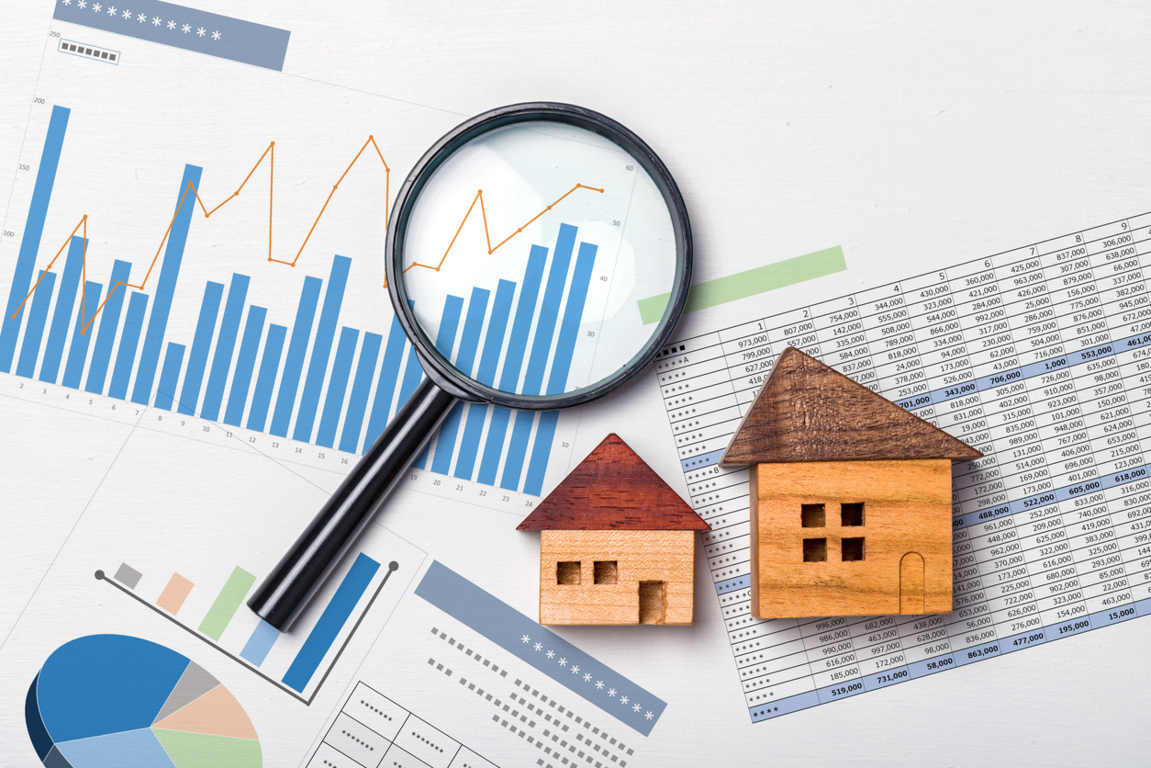Table of Contents
ToggleAre you applying for home loan in Egypt?
Buying a home is a significant life milestone, and for most Egyptians, it involves securing a home loan or mortgage from a bank or financial institution. If you’re planning to buy a house or apartment in Egypt through financing, being well-prepared with the right documentation can save you time, reduce stress, and increase your chances of getting your loan approved.
This article provides a comprehensive overview of the documents typically required to apply for a home loan in Egypt, whether you’re an Egyptian citizen, an expatriate, or a foreign investor. Requirements may vary slightly from one bank to another, but the core paperwork is largely consistent across financial institutions.
Personal Identification Documents
The most basic and essential requirement for a home loan is valid proof of identity. Lenders use this to verify who you are and to confirm your legal eligibility to apply for a loan.
For Egyptian Citizens:
-
Valid National ID Card – This must be current and not expired.
For Foreign Nationals or Expats:
-
Valid Passport – With a valid visa or residency permit.
-
Work Permit or Residency Card – Particularly for long-term residents or those employed in Egypt.

Proof of Income
Lenders want to make sure you have a stable income and the ability to repay the loan. Depending on your employment status, different documents may be needed.
For Salaried Employees:
-
Employment Verification Letter – Issued by your employer, indicating your job title, employment status, salary, and years of service.
-
Recent Payslips – Usually the last 3 months are required.
-
Bank Statements – Typically, the last 6 months of bank statements showing salary deposits and regular financial activity.
For Self-Employed Individuals:
-
Commercial Registration and Tax Card – Proof that your business is legally registered in Egypt.
-
Financial Statements or Tax Returns – For the last 1–2 years to demonstrate income and profitability.
-
Bank Statements – Showing business income, expenses, and cash flow for the past 6–12 months.
Property-Related Documents
Banks will not finance a home unless they are sure that the property is legally sound and its ownership is clear. These documents vary depending on whether you’re buying a newly built apartment from a developer or a resale property from a private seller.
Commonly Required Documents Include:
-
Copy of the Property’s Title Deed – To prove current ownership.
-
Building Permit – To ensure the property was built legally.
-
Latest Utility Receipts – Water, electricity, or gas bills to verify that the property is operational and not abandoned.
-
Sales Agreement or Preliminary Contract – This outlines the purchase terms between the buyer and the seller.
-
Land Registry Documents – These confirm the legal status of the land on which the property sits.
For Properties Under Construction:
-
Contract with Developer – Outlining payment plans and delivery timelines.
-
Proof of Down Payment – Receipts showing that you’ve already paid a percentage of the property’s value.
Credit History and Financial Background
Banks in Egypt have started placing more importance on your creditworthiness. While not all lenders require a formal credit score, many will assess your overall financial profile.
Required Documents:
-
Credit Bureau Report (I-Score) – This is Egypt’s official credit reporting agency. It gives the bank a record of your borrowing history and repayment behavior.
-
Existing Loan and Credit Card Statements – These help the bank assess your debt-to-income ratio.
-
Debt Clearance Certificate (if applicable) – If you’ve recently paid off a large loan, this document confirms it.
Marital Status and Spousal Consent
In Egypt, certain legal procedures related to property ownership and financing can involve your spouse. Some banks require spousal consent or documentation proving marital status.
Required Documents:
-
Marriage Certificate – If you’re married.
-
Divorce Certificate or Death Certificate (if applicable) – In case of a previous marriage.
-
Spousal National ID – In cases where joint ownership or consent is involved.
Guarantor Documentation (if required)
If your income or credit history is not strong enough on its own, the bank may require a guarantor. In this case, the guarantor must provide their own set of financial and identification documents similar to yours.
Loan Application Form and Bank-Specific Requirements
Every bank in Egypt will have its own mortgage application form that needs to be completed. In addition to this, banks may have minor differences in required documentation or may request further clarification based on your specific case.
Examples of Bank-Specific Add-ons:
-
Property Valuation Report – Some banks will conduct or request an independent property valuation.
-
Insurance Documents – Proof of life insurance or property insurance may be requested as a condition of the loan.
-
Down Payment Receipts – Proof that you’ve already paid a portion of the property’s value out of pocket.
Tips for a Smooth Home Loan Process in Egypt
-
Organize Early: Begin collecting these documents before applying to avoid delays.
-
Double-Check Validity: Make sure all documents are up-to-date, signed, and properly stamped.
-
Get Professional Help: Consider hiring a real estate lawyer or mortgage advisor to review paperwork, especially for legal or resale properties.
-
Compare Banks: Interest rates, processing fees, and documentation requirements can vary across banks like Banque Misr, CIB, QNB, and National Bank of Egypt.
-
Understand Loan Conditions: Make sure you understand all conditions of the mortgage, including grace periods, interest calculation method (fixed vs. reducing), and early repayment fees.
Conclusion
Applying for a home loan in Egypt requires a detailed set of documents that demonstrate your identity, financial stability, and the legality of the property you’re purchasing. While the process may seem complex at first glance, being prepared with the correct documentation can greatly increase your chances of approval and make the overall experience smoother.
Whether you’re buying your first home, investing in real estate, or upgrading your living situation, knowing what paperwork to gather is the first critical step toward homeownership in Egypt.
Frequently Asked Questions
What are the basic documents required to apply for a home loan in Egypt?
The fundamental documents include:
-
A valid national ID card for Egyptian citizens or passport and residency permit for foreigners.
-
Proof of income (e.g., salary slips, bank statements).
-
Property documents such as title deed and building permit.
-
Credit history report (I-Score).
-
Bank application form and potentially proof of marital status.
These help the bank verify your identity, financial capability, and the legality of the property.
Do I need to be employed to get a home loan in Egypt?
Not necessarily. You can qualify whether you’re:
-
Salaried (with employment verification and salary slips),
-
Self-employed (with commercial registration, tax card, and financial statements), or
-
A freelancer or business owner, provided you can show stable income through bank statements and tax filings.
Can foreign nationals apply for a home loan in Egypt?
Yes, but with conditions:
-
Foreigners must have a valid residency permit and work permit in most cases.
-
Not all banks offer mortgages to foreigners, so it’s best to check with international or private banks like HSBC, CIB, or QNB.
-
Some restrictions apply to the type and location of property a foreigner can buy.
What income documents are needed if I’m self-employed?
You’ll typically need:
-
Commercial registration and tax card proving your business is registered.
-
Tax returns for the last 1–2 years.
-
Bank statements (usually last 6–12 months) to show consistent income.
-
In some cases, audited financial statements or a letter from your accountant may also be requested.
What property documents are required by the bank?
You’ll need:
-
A copy of the title deed or contract of ownership.
-
The building permit to prove legal construction.
-
Utility bills to confirm the property is operational.
-
For new projects, the purchase agreement with the developer and payment receipts are usually required.
How much of the property price do I need to pay upfront?
Most Egyptian banks require a down payment of 15% to 30% of the property value. This percentage may vary depending on:
-
Your income level.
-
Property type (new or resale).
-
Bank policies.
You’ll need to submit receipts or proof of payment for this amount during the loan process.
What is the I-Score, and why do I need it?
The I-Score is Egypt’s official credit bureau report, showing your borrowing history, outstanding debts, and repayment patterns. Banks use it to assess:
-
How responsible you are with credit.
-
Whether you’ve missed payments or defaulted in the past.
A poor I-Score could result in rejection or a higher interest rate.
